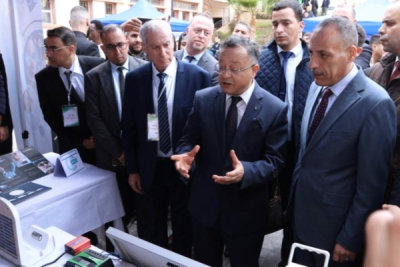During his presidency, which began in May 2015, outgoing president, Muhammadu Buhari, successfully showcased Nigeria on the international tech scene. His successor wants to do even better over the next four years.
Bola Tinubu (photo), Nigeria’s new President sworn in on Monday, wants to leverage digital technologies to further develop the country.
To this end, he has drawn up a program focusing on seven areas: innovation and entrepreneurship, service provision and outsourcing, technology manufacturing, e-commerce, digitization of public services, broadband, and blockchain.
His team plans to implement policies to support local financing opportunities and access to capital to encourage foreign investors to continue investing in Nigeria. Policies to train and empower young people in ICT will also be developed.
They also plan to develop the e-commerce sector by upgrading the national transport infrastructure to provide nationwide services and meet the needs of consumers across the country.
The new government also wants to invest in the manufacture of technological products since it presents another major opportunity for job creation. Imported smartphones will be gradually replaced by local products from local assembly plants built to develop the tech manufacturing sector.
Concerning blockchain, the new President plans to reform government policy to encourage the prudent use of this new technology in finance and banking, identity management, revenue collection, and the use of crypto-assets.
Aware that all these projects will not come to fruition without good Internet connectivity, the new president is set on boosting broadband connectivity and providing high-speed internet to 90% of the population within the next two years. Currently, Nigeria's national fiber optic network is 98% complete, according to the government.
Universal Internet coverage will enable the use of public services, with further digitization expected for the coming months, we learn.
Mr. Tinubu targets one million jobs created in the ICT sector in his first 24 months in office.



















